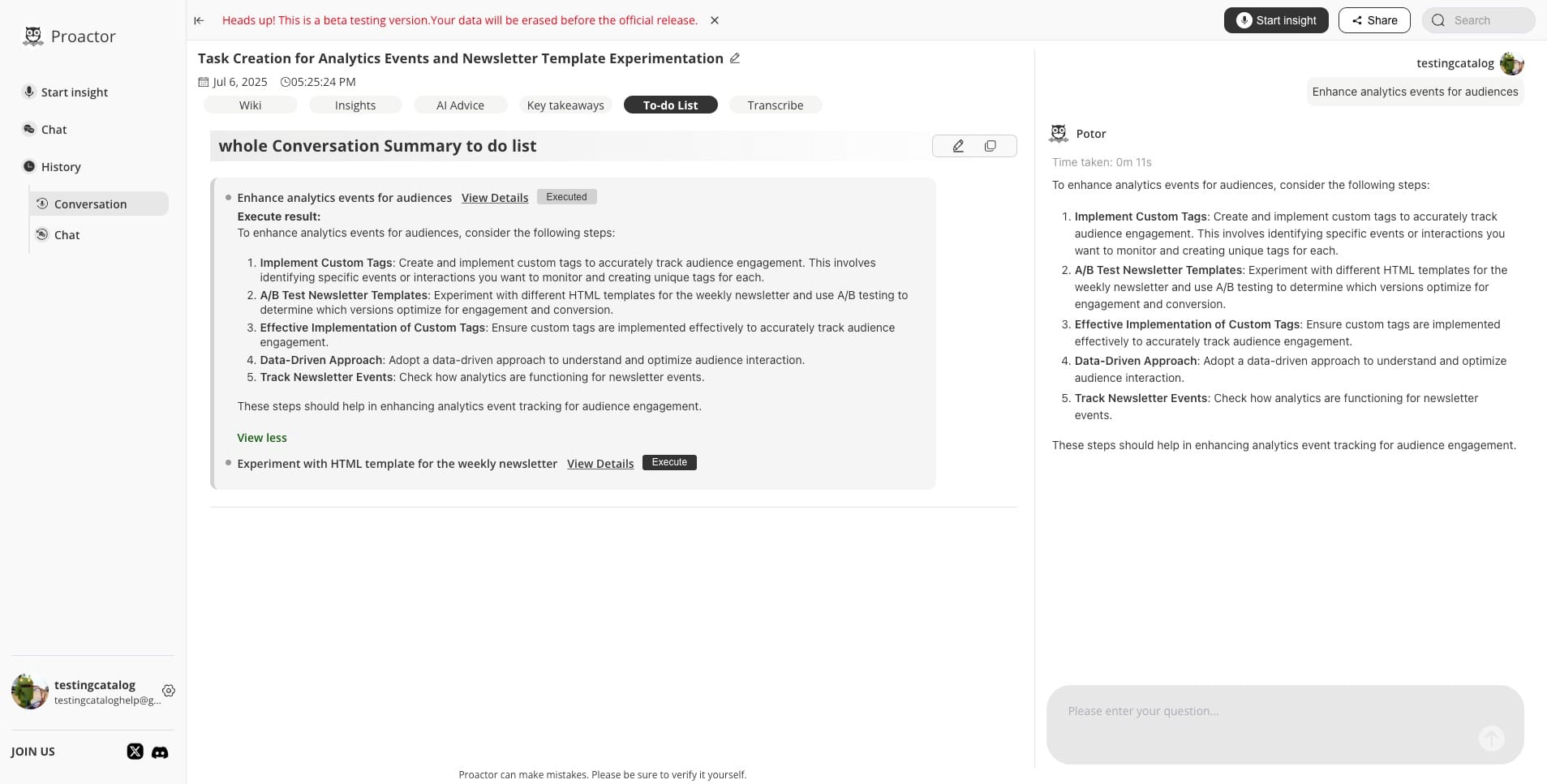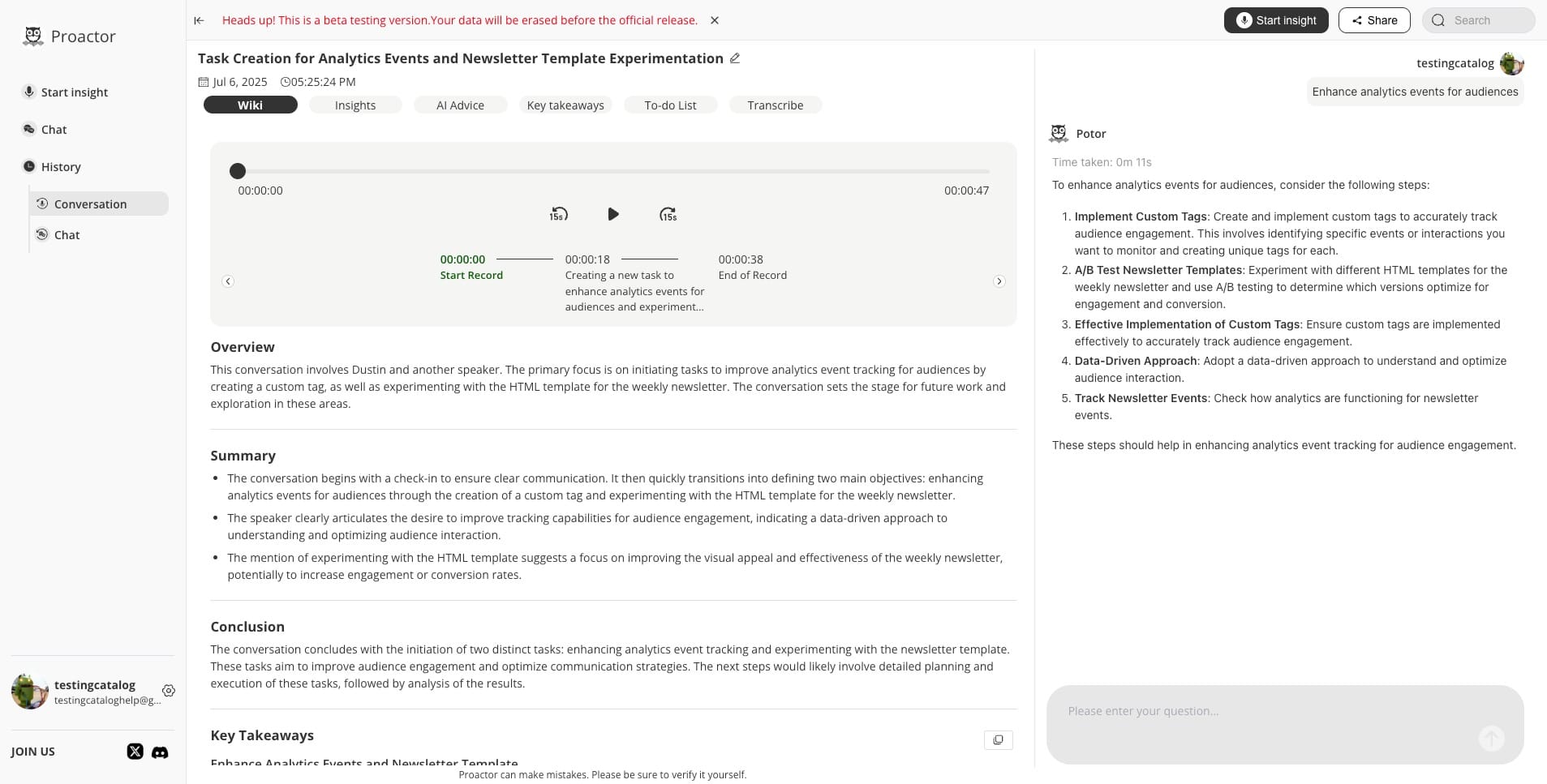Proactor is positioning itself as a tool for professionals, managers, and teams who handle frequent meetings and want a more structured approach to capturing and using the knowledge generated in those interactions. Unlike traditional meeting assistants that focus mainly on transcription or passive note-taking, Proactor actively generates context-aware suggestions, called "AI Advice", creates actionable to-do lists, and builds a persistent wiki-style knowledge base from every conversation.
Announcing Proactor v1.0, world’s first ‘self-active’ AI teammate.
— Proactor (@Proactor_ai) July 8, 2025
Proactor v1.0 is super-smart. It can perceive, think, and act by itself. No prompt, no hot key, pure initiative. Someone trying to cheat on you? Proactor can auto fact-check and call them out.
Say you’re going… pic.twitter.com/Qp29mvW2Tj
The value for users is the continuity, tasks and action items don’t just sit in meeting notes; they are maintained across different sessions, and you can easily review or follow up on unresolved points by chatting directly with the conversation record.
The tool’s core features, summaries, categorized insights, to-do extraction, speaker-attributed transcripts with timestamps, and the ability to replay or query past discussions, appear in its web app interface. This fits with trends in collaborative productivity software, where context retention and proactive assistance are in demand but still largely underserved by mainstream solutions. The ability to generate and manage to-do lists not just per meeting but across all conversations shows an intent to solve the “lost action item” problem that plagues knowledge workers. However, there’s still a gap: a unified UI for managing all tasks in one place is not yet present, and this will be important for broader adoption.
Proactive AI Advice in action!
Proactor’s approach of allowing users to both act on and edit AI-generated tasks directly within the conversation reflects a growing shift among productivity startups to empower users rather than just automate.

The company behind Proactor appears to be exploring a differentiated niche, focusing on both memory and active assistance rather than just documentation, which could fit into the evolving landscape of AI-driven workplace tools. If the web app delivers reliable suggestions and a robust knowledge base, it may find traction among teams overwhelmed by scattered meeting notes and follow-ups. How Proactor balances automation, user control, and integrations with other productivity tools will likely shape its reception as it matures.
